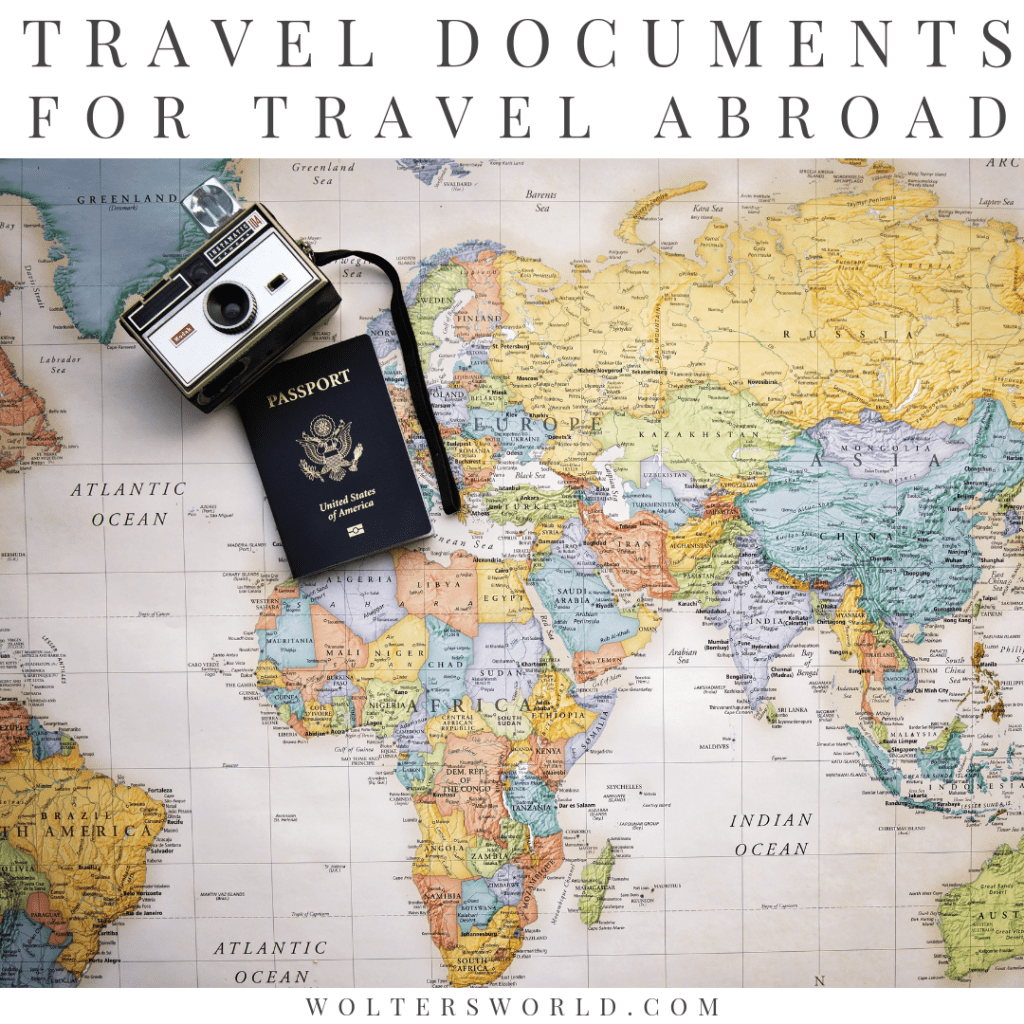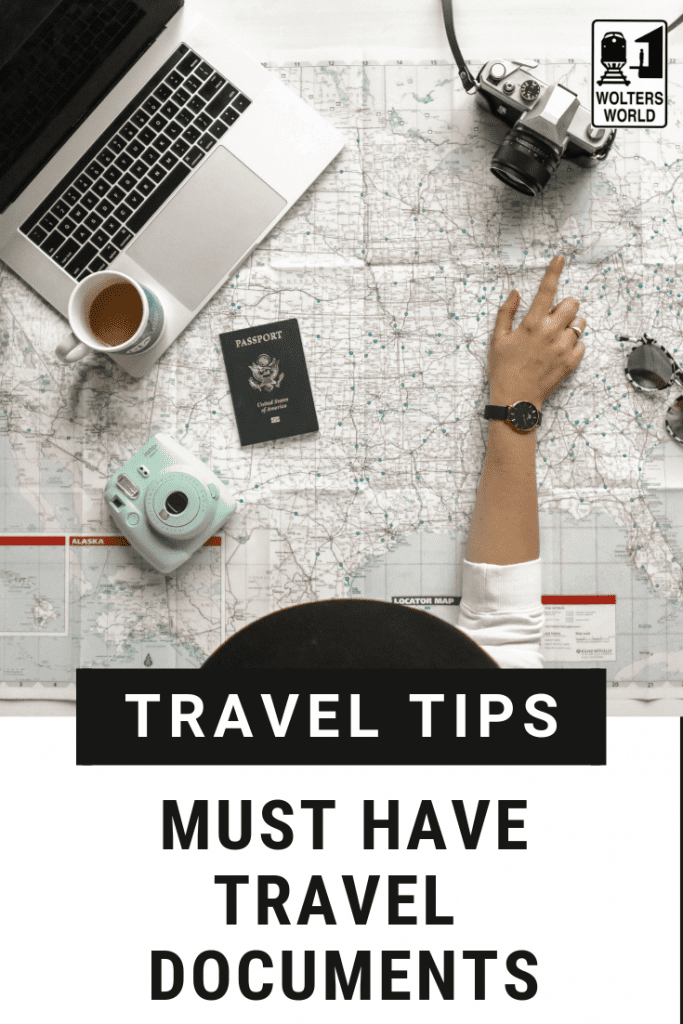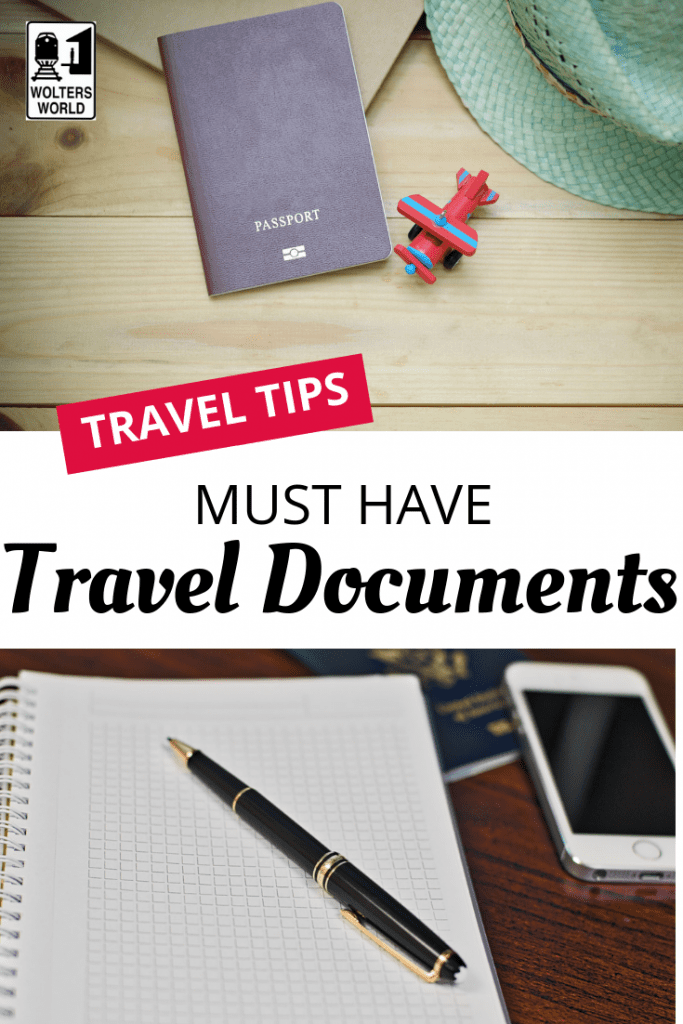Hey there, fellow travelers! Today we’re in Vienna, Austria at Schloss Belvedere. Our topic today is all about the travel documents you need for overseas travel. This isn’t just a checklist to check right before your trip; some of these travel documents can take a few months to procure, so it’s never too early to get started!
#1 Passport
The number one thing you need to have when traveling abroad is your passport. If you aren’t sure when you are going to be traveling overseas, go ahead and apply for a passport as soon as possible. It can take up to two or three months to get your passport, so don’t pay expediting fees unless you need to. You also need to make sure that your passport is valid for six months beyond your planned travel, or you could be declined entry when you land at your destination.
Watch: What to Do if You Lose Your Passport
#2 Tourist Visa
This is not required for all countries, but it’s something you need to find out ahead of time. Visa requirements vary greatly between destinations and countries of origin. If you are American traveling to Europe, as of 2019, you do not need a visa. If you are visiting Russia or China, regardless of your country of origin, you will need to apply for a visa in advance. Other countries, like Cambodia, will issue a visa on arrival, but you have to have cash and paperwork ready. So, wherever you are traveling to, make sure you do your research ahead of time to see if you need a visa in advance, and what the visa requirements are. It can be expensive, especially considering that every member of the family will need a visa.

Read: How to Get a Chinese Visa
#3 Airline Tickets & Itinerary
I recommend carrying two copies of your flights and trip itinerary. Take one to carry with you, and give one to a friend at home. Upload a third copy to the cloud, but don’t rely on this as your only copy as you may have trouble accessing the internet when you need it. Some countries will want to see proof that you have transportation booked to return home, so it’s crucial to have your flight information easily accessible.
#4 Hotel Reservations & Payments
Similar to your airline tickets, make sure you have printed copies of your hotel reservations that also show any payments you’ve already made. Again, leave a copy with someone at home, but keep a printed copy on you that is easily accessible. I once had an innkeeper in Ireland who wouldn’t accept my email on a phone as proof of our reservation, so we had to go find someplace to print it. Since then, we always keep a printed copy of hotel reservations. This is especially important if you book through 3rd party websites, such as Booking.com or Expedia.
#5 All Other Reservations
Make sure you have a printed copy of any reservations you’ve made for your trip. Whether it’s a train ticket, tours or attraction tickets that you’ve pre-purchased, have everything printed out and easy to access during your trip.

#6 Documents to Leave at Home
Before you leave for your trip, make a copy of your passport and any tourist visas, and leave those with someone at home. Keep a copy with you as well, but keep it somewhere other than the originals, in case you lose the original. I like to keep one set in a hidden zipper compartment in the suitcase, while the other one stays with me. If you are in a city with a lot of pickpockets, don’t carry your passport around; keep it in the hotel safe, and carry the photocopy instead.
#7 Credit Card and Bank Numbers
Make a copy of all credit card numbers and bank numbers and leave those with a trusted friend or family member. You also want to write down the phone numbers for your credit cards and keep those somewhere in your suitcase in case your card is lost and you need to reach the credit card company.
#8 File a Travel Plan With Your Bank
Before you leave the country, let your bank know that you’ll be traveling. They’ll want to know where, and when so they can put an alert on your account. You can also do this online with most banks, and you’ll just set a date range and the countries you are visiting. If you don’t do this, you may find your card declined upon arrival, and then you’ll need to contact your bank to free up your card.

These are documents you should have squared away before leaving on a trip. What else would you add to this list? Tell us in the comments! For more travel tips and advice, check out these blog posts and videos:
